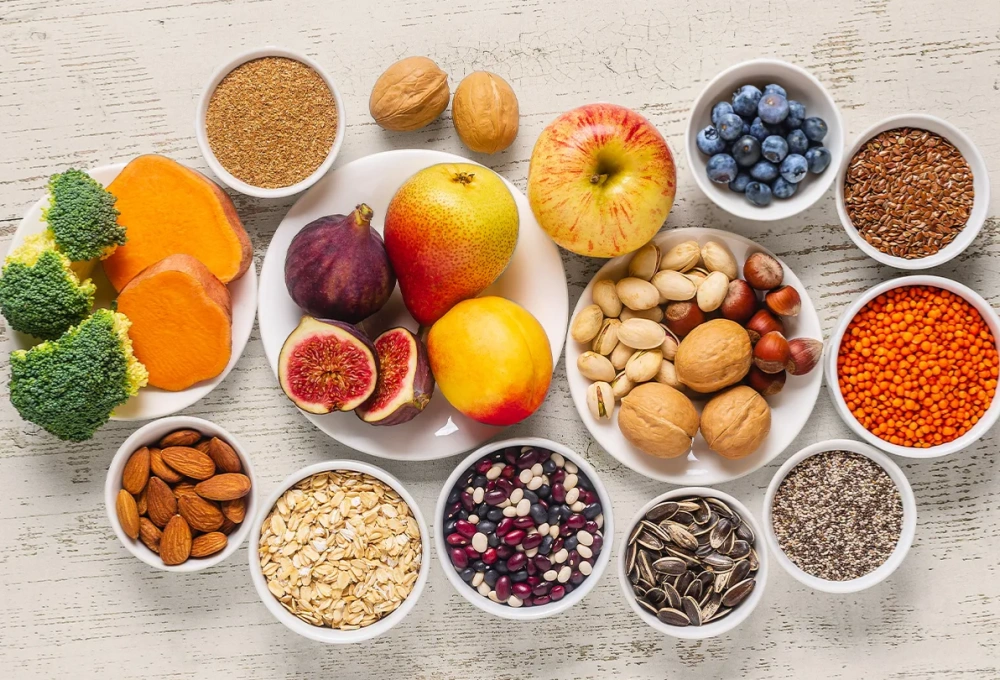Fiber is a type of carbohydrate that our bodies cannot digest. It is found in plant foods such as fruits, vegetables, whole grains, and legumes. Unlike other carbohydrates, fiber does not contribute to blood sugar spikes because it is not broken down into sugar molecules. This unique characteristic of fiber brings about various health benefits.
One of the primary benefits of fiber is its ability to support digestive health. As fiber passes through the digestive system, it adds bulk to the stool, which can help prevent constipation. Additionally, certain types of fiber serve as prebiotics, providing nourishment for the beneficial bacteria in our gut. These bacteria play a crucial role in everything from digestion to immune function.
Fiber is also a champion when it comes to heart health. It can help to lower levels of LDL cholesterol, the “bad” cholesterol that can contribute to artery blockages. By binding to cholesterol in the digestive system, fiber helps to remove it from the body before it can be absorbed into the bloodstream.
Another notable benefit of fiber is its role in weight management. High-fiber foods tend to be more filling, so you’re likely to eat less and stay satisfied longer, which can help with weight management.

Moreover, a diet high in fiber-rich foods like fruits, vegetables, and whole grains is generally lower in calories compared to a diet with lots of processed foods.
Fiber also plays a role in regulating blood sugar levels. It slows the absorption of sugar into the bloodstream, which can prevent spikes in blood glucose and insulin levels. This is particularly beneficial for people with diabetes, but it’s also useful for anyone looking to maintain steady energy levels throughout the day.
Given these benefits, it’s clear that fiber is a crucial part of a healthy diet. Yet, many people fall short of the recommended daily intake of 25 to 38 grams. To increase your fiber intake, aim to include a variety of fruits, vegetables, whole grains, and legumes in your diet. Consider starting your day with a high-fiber breakfast like oatmeal topped with berries, or swap out white bread and pasta for whole grain versions.
Fiber is a nutritional powerhouse that supports digestive health, heart health, weight management, and blood sugar regulation. So, don’t overlook this essential nutrient. Make sure you’re getting enough fiber in your diet.


